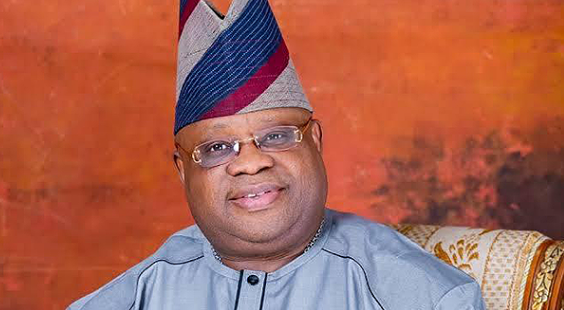ABUJA – THE Federal Government disclosed yesterday it has commenced the validation of a National Consumer Trust Framework to deepen financial inclusion and restore credibility in the banking sector.
The initiative, expected to tackle cyber fraud and rebuild public confidence in Nigeria’s financial system, is led by the Presidential Committee on Economic and Financial Inclusion, PreCEFI, which brought together key stakeholders at a workshop held at the Presidential Villa, Abuja.
Speaking at the event, Technical Adviser to the President on Economic and Financial Inclusion, Dr. Nurudeen Abubakar Zauro, said President Bola Tinubu’s Renewed Hope Agenda placed financial inclusion at the centre of Nigeria’s economic recovery strategy
He explained that the goal was to harmonise efforts across regulatory agencies, financial institutions, and the judiciary to reduce distrust among Nigerians, especially the poor and vulnerable, who have grown wary of engaging with the formal banking system due to rising incidents of cybercrime and weak consumer protection.
Dr. Zauro said: “If you look at the Renewed Hope Agenda, almost all eight priority areas touch on financial inclusion—especially access to capital and inclusivity. Every economically active Nigerian must not be left behind.”
He acknowledged that public anxiety over fraudulent schemes, commonly known as ‘419’, and ineffective complaint redress mechanisms had led to widespread mistrust in the banking sector.
“For people to come into the formal financial sector, there must be confidence in the system. If you lose ¦ 1,000 at a POS, that may be worth ¦ 10 million to someone else. So restoring trust is key”, he said.
Dr. Zauro said the national framework was to replicate the trust-based governance model initiated by President Tinubu during his tenure as Lagos State governor in 2004.
He said: “This is about building trust for the last man, the poor and vulnerable Nigerian. When someone sells cattle for ¦ 1 million, instead of hiding it under a pillow, they should be able to walk into a bank with confidence that their money is safe.’’
He explained that the new framework would align existing efforts from the Central Bank of Nigeria, CBN, Federal Competition and Consumer Protection Commission, FCCPC, and other regulatory agencies into a single, unified national policy backed by all arms of government.
“We are harmonising all existing efforts—what the Central Bank is doing, what the regulators are doing, and what agencies like the FCCPC are doing. But more importantly, we want one unified national framework,” he said.
Part of the effort, Dr. Zauro noted, involved ensuring judicial officers were financially literate and equipped to handle dispute resolution effectively.
Also speaking with journalists on the sidelines of the workshop, Dr. Aisha Isa Olatiwoon, Director of Consumer Protection and Financial Inclusion at the CBN, reaffirmed the apex bank’s commitment to safeguarding consumer interests.
“Customers must first escalate unresolved complaints to their banks. If there’s no resolution within the regulatory timeframe, or if the outcome is unsatisfactory, then they can escalate to the CBN,” she said..
Dr. Olatiwoon disclosed that the CBN was already operating a customer Complaint Management Solution, CMS, adding that efforts were underway to integrate it into a broader industry dispute resolution system.
“We want a system where we can monitor in real time how banks are handling complaints and hold them accountable if they fall short. This is about transparency, accountability, and ensuring that every Nigerian feels safe banking”, she said.
She emphasised that consumer protection, financial literacy, and inter-agency cooperation were critical to building trust in the financial system and achieving the broader goals of sustainable banking.
Dr. Zauro stressed that the workshop was not just another policy roundtable but a concrete step toward implementation.
“We’re not just talking. The national framework will be formally issued and, if necessary, backed by legislation. Mr. President is ready to do all that is needed to restore confidence,” he said.
He added that restoring trust in the financial system was key to unlocking opportunities within the African Continental Free Trade Area, AfCFTA, and propelling Nigeria toward its goal of becoming a $1 trillion economy by 2030.
The National Framework on Strengthening Trust for Financial Inclusion is expected to be officially launched by the Central Bank of Nigeria in the coming weeks.
Once adopted, it will serve as the central policy reference for regulators, financial service providers, and lawmakers in fostering a secure, inclusive, and trusted financial environment for all Nigerians.
By Damilola Adeleke | June 3, 2025
Discover more from DnewsInfo
Subscribe to get the latest posts sent to your email.




